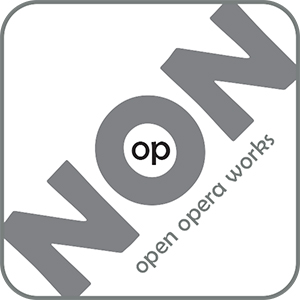Samuel Beckett, Cascando

Opener, Kao Ra Zen
Voice, Michael Herzovi
Music, Christophe Preissing
Creative Technology, Theo Economides
Beckett’s short radio play, Cascando, was composed in French in 1962, translated and published in English in 1963, and broadcast in English on the BBC in 1964. Featuring three characters—Opener, Voice, and Music—Cascando tells the story of trying to tell a story to end all stories… Woburn’s story, the final story, the right one.
Originally to be titled Calando, an Italian word often used as a music direction meaning a gradual descrease in tempo and volume of sound, Cascando—literally cascades—shares the reference to dying away, and further means falling, stumbling, or tumbling. Woburn, long-lived and unseen character, tumbles and falls three times in the mud, in the sand, and in the rocks, each time getting up again to struggle with the “huge bulk”, the “ton weight”. Changed, but not “nearly enough”. A sigh, an exhalation, a Woe is me, the connection between Woburn and Beckett is clear enough, to go on, to continue the campaign to create among those who do not understand is both crusade and resignation.
This production of Cascando continues our work with binaural audio and technology. The play is presented in the darkened space, an old-fashioned radio, dimly lit, sits on a table positioned at one end of the chamber. Audience members wearing headphones, tune in to the live and recorded program on our YouTube channel.
Opener’s voice resonates in the space and directly through the headphones. Voice—recorded with binaural microphones—and music, both of whose utterances are controlled by Opener, are only heard through headphones. Sometimes close, sometimes distant, whispered, full-voiced, and located around the ears, Voice may be our—or Opener’s—internal thoughts swirling around in our heads. Music—swelling and subsiding—the possible feelings associated with or independent from thought. Music plays a mimetic role in Cascando, illuminating, through sound and feeling, the creative process Beckett presents in Cascando. Voice, on the other hand, performs a diagetic role, describing the struggle to create and the process itself. While humans can speak at a rate of about 150 words per minute, our brains have the capacity of processing approximately 400 words per minute. And who can say what affect music has or contributes to understanding. Cascando is thus a monodrama for three “performers”—Opener, Voice, Music—which may or may not represent Beckett’s on and off again personal creative battle.
This is NON:op’s second production of Cascando, the first in 2018 directed by and featuring Sam Porretta as Voice. Porretta died in 2020 during the pandemic. His recording of Voice for that production was emblematic of the struggle, and his personal struggle, to create. Sam, no matter the difficulties in his life, was joyful, giving, and patient with all whom he came in contact and with whom he shared the journey. This production of Cascando and On the Cusp is dedicated to Sammy’s memory and to his kind, loving, and indomitable spirit.

